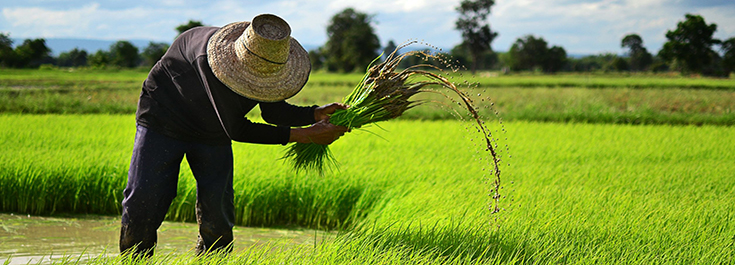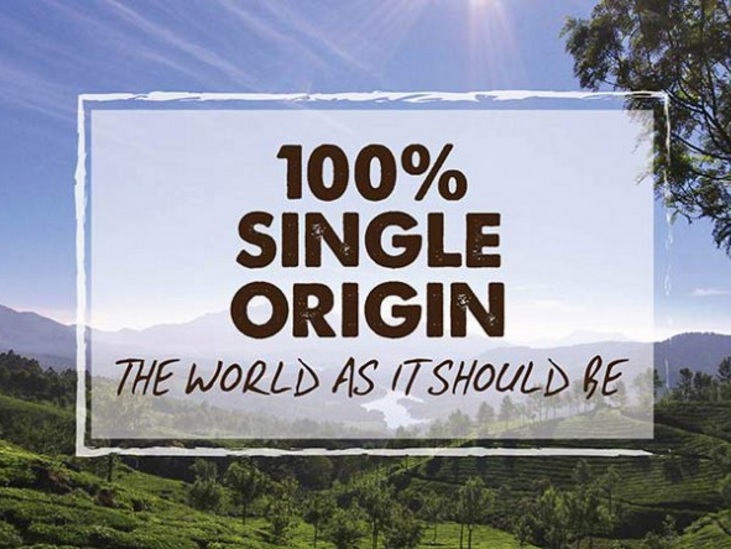One Company is Setting a Whole New Level of Transparency for our Food Supply
One Company is Setting a Whole New Level of Transparency for our Food Supply
What are your thoughts about the label?
If you haven’t yet heard of the “Single Origin Verified” food label, that’s because just one company is leading the industry with a new level of transparency for our food, with a hope that others will follow, of course. The Real Co. is launching the “Single Origin” food labelto tell consumers exactly where their food comes from.
Even companies with good intentions have had a difficult time ensuring that food is Non-GMO Verified, and others have used the label to promote their goods that were FULL of GMOs. Colin Carter, the owner of The Real Co., had an idea to source food the old fashioned way – from reputable, hard-working people who aren’t involved in Big Food’s shenanigans . It’s like taking the Fair Trade label and the Non-GMO Verified Label, and holding them to a whole new standard.
For example, Malik Anwaar and his son spend hours each day mining pink rock salt from a local mine in Lahore, Pakistan. They use hand-turned equipment and techniques passed down by Anwaar’s family for generations.
Carter’s first approach to Anwaar to purchase his salt was met with cynicism. He wasn’t used to being offered a price higher than what he could sell his salt for at local markets, and he worried Carter’s offer was a scam.
Over time, the Irish businessman built a relationship of trust with Anwarr, purchasing smaller, and then larger containers of the salt. Anwarr now supplies The Real Co., the single-origin pantry staple company Carter founded in 2014, with one-source pink salt.
Since that time, and the steady purchases made by The Real Co., Anwaar has been able to make modest improvements to his operation, including upgrading his storage facilities. According to The Real Co.’s CEO Belal El-Banna, the salt’s improved quality has been worth the price. He says had a buyer tell him that it was less harsh than other salts he carried, so El-Banna’s team asked the miners what the difference was.
“They said the majority of people who extract salt use dynamite and machine extraction, which mixes all the salt together. But being a mining family, [Anwaar’s family] understands the difference between food-grade and spa-grade salt. The quality comes through because they know a lot about their product.”
For now, The Real Co. supplies staple items like salt, sugar, and rice from individual farmers and producers, and then adds their name to the product label hoping that it boosts consumer confidence due to their reputation for transparency and traceability. The company is so committed to transparency that if one type of rice is grown at three different farms it is sold in three different packages.
They are able to stay competitive because their business model cuts out the middlemen – going straight to the farmers themselves.
The Real Co. also plans to work with a third party certifier to launch a certification scheme that will allow other companies to place a “Single Origin Verified” label on their foods, too. El-Banna explains that though it is their business model, it is a good way to do promote organic, fair trade, and support the livelihoods of people who bring us real, unadulterated food:
“The single origin certification goes over and above things like fair trade or organic. It talks about not just where the product comes from, but whether the farms they source from have a sustainable program, whether the products are non-GMO, how the people are being treated on the farms, and so on.”
The certification program will be launched at Natural Products Expo West, a trade show in California next month.
El-Banna concedes that there are already enough labels and certifications out there to overwhelm a customer. The point, though, isn’t to create another feel-good label.
“We don’t want it just to be a tick in the box. We want it to be something that comes from a rooted belief in supplying consumers with transparency and visibility.”
El Banna says that there are more than 40 companies who have already expressed a desire to participate in the certification program. Companies who already knew where their ingredients came from were the most eager to participate. He says too that at the end of the day it’s all about transparency, and helping people to know exactly where their food comes from .
Considering the pink slime found in some beef, the child labor used to grow and harvest coffee and cocoa, as well as the abhorrent ways many chickens are raised on factory farms, I’m very excited about a single-origin food label. It is more than the Grocery Manufacturer’s Association or Monsanto would ever offer, and it’s just in time to expose more fraud in the food industry.
What are your thoughts about the label? Would you like to know if your rice came from an organic farm in the hills of Phuket, or from a Japanese province? How about knowing if your sugar was derived from an organic cane farm in Hilo, Hawaii, or another that uses copious pesticides is Fiji.
| About Christina Sarich: | |
| Christina Sarich is a humanitarian and freelance writer helping you to Wake up Your Sleepy Little Head, and See the Big Picture. Her blog is Yoga for the New World. Her latest book is Pharma Sutra: Healing the Body And Mind Through the Art of Yoga. | |
Other Popular Stories:


Post a Comment